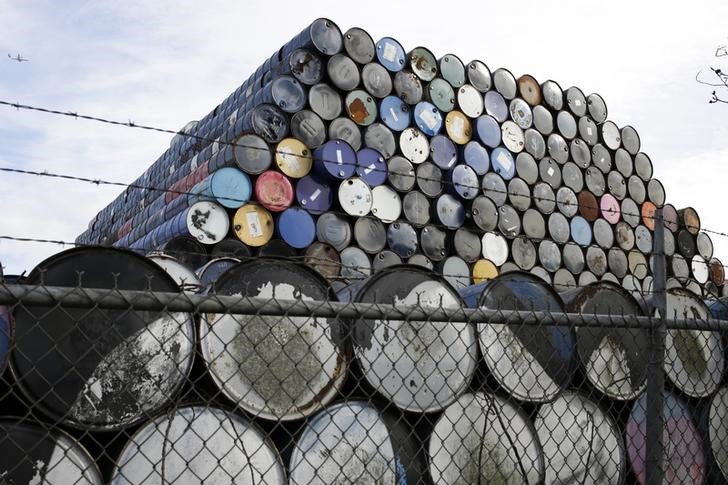Investing.com - Oil prices struggled near multi-month lows in European morning trade on Wednesday, as investors looked ahead to weekly data from the U.S. on stockpiles of crude and refined products later in the global day.
Markets had a muted reaction to news that Saudi Arabia has relieved Muhammad bin Nayef as crown prince, replacing him with Mohammad bin Salman.
The U.S. West Texas Intermediate crude August contract was at $43.49 a barrel by 3:10AM ET (0710GMT), down 2 cents. The U.S. benchmark fell to its lowest since November 14 at $42.94 in the prior session.
Elsewhere, Brent oil for August delivery on the ICE Futures Exchange in London dipped 7 cents to $45.95 a barrel, after hitting $45.42 a day earlier, a level not seen since November 15.
Oil prices lost around 2% on Tuesday, falling into bear market territory, as concerns over a steady increase in U.S. production added to fears over a glut in the market.
The U.S. Energy Information Administration will release its official weekly oil supplies report at 10:30AM ET (1430GMT) Wednesday.
Analysts expect crude oil inventories dropped by around 2.1 million barrels at the end of last week, while gasoline supplies are seen increasing by 443,000 barrels and distillates are forecast to gain about 465,000 barrels.
After markets closed Tuesday, the American Petroleum Institute said that U.S. oil inventories fell by 2.72 million barrels in the week ended June 16.
The API report also showed a gain of 346,000 barrels in gasoline stocks, while distillate stocks rose by 1.837 million barrels.
There are often sharp divergences between the API estimates and the official figures from EIA.
Oil prices have been under pressure in recent weeks as concern over rising U.S. shale output offset production cuts by OPEC and non-OPEC members.
U.S. drillers last week added rigs for the 22nd week in a row, extending a year-long drilling recovery to the highest level since April 2015, implying that further gains in domestic production are ahead.
The increase in U.S. drilling activity and shale production has mostly offset efforts by OPEC and other producers to cut output in a move to prop up the market.
Last month, OPEC and some non-OPEC producers extended a deal to cut 1.8 million barrels per day in supply until March 2018.
So far, the production-cut agreement has had little impact on global inventory levels due to rising supply from producers not participating in the accord, such as Libya and Nigeria.
Elsewhere on Nymex, gasoline futures for July inched up half a cent to $1.423 a gallon, while July heating oil added lost 0.4 cents to $1.394 a gallon.
Natural gas futures for July delivery ticked down 0.9 cents to $2.897 per million British thermal units.
